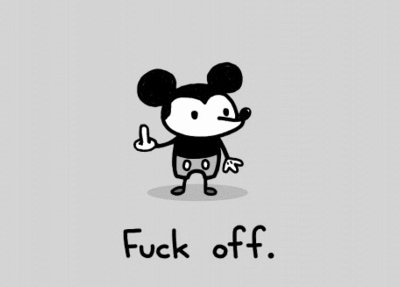Oligarchy is a form of power
structure in which power effectively rests with a small number of people. These
people could be distinguished by royalty, wealth, family ties, education, military
control or corporate ties. Oligarchy should not be associated always as a rule
by wealth (the appropriate term for that being plutocracy), although wealth is
a common distinguishing factor. Oligarchs can simply be a privileged group, and
do not have to be connected by bloodlines as in a monarchy [1]

Definitions
Corporate oligarchy is a form
of power, governmental or operational, where such power effectively rests with
a small, elite group of inside individuals, sometimes from a small group of
educational institutions, or influential economic entities or devices, such as
banks, media producers and broadcasters, commercial entities, lobbyists that
act in complicity with, or at the whim of the oligarchy, often with little or
no regard for constitutionally protected prerogative. Monopolies are sometimes
granted to state-controlled entities, such as the Royal Charter granted to the
East India Company, or privileged bargaining rights to unions (labor
monopolies) with very partisan political interests. Today's multinational
corporations function as corporate oligarchies with influence over
democratically elected officials. The severity of the effect increases as
corporations transcend the national borders and become transnationals.
Corporatocracy is a term used
to suggest an economic and political system controlled by corporations or
corporate interests. The term was used by author John Perkins in his 2004 book "Confessions
of an Economic Hit Man", where he described corporatocracy as a collective
composed of corporations, banks, and governments. This collective is known as
what author C. Wright Mills would call the "Power Elite". The Power
Elite are wealthy individuals who hold prominent positions in Corporatocracies.
These individuals control the process of determining society's economic and
political policies. [2]
Corporate America et al.
Interlocking directorates (defined
as the linkages among corporations created by individuals who sit on two or
more corporate boards) have been a source of research attention since the
Progressive Era at the turn of the 20th century. Today corporate interlocks are
analyzed with bigger databases and sophisticated network programs. And the idea
that the few dominate the many will not come as news to those gathered either
to "occupy wall street" or to "occupy everywhere". But up
until these current days it has been more or less a "conspiracy
theory" level event, that a few corporations could control the global
market and essentially the world.

An organised study led by S.
Vitali of the Swiss Federal Institute of Technology in Zurich
An article back in 2005 by
G.W. Domhoff concluded that : "… many corporate leaders don't just sit at
their home corporation attending to their own business. Through meeting
together on boards of directors, those who are interlocking directors develop
social cohesion and shared perspectives to go with their economic power bases.
This is why such people are the core of the leadership group for the upper
class and the corporate community, which I call the power elite. However, we
should not make too much out of the exact shape of the interlock network at any
given moment because too much can change when the corporate network is no
longer made up strictly of owners and financiers who are using their
directorships to coordinate their economic interests." [5]
The truth is that by opting
out the facts that individuals tend to band together and to the strongest
leaders, and simply that oligarchy has been a most successful model in
accumulating wealth and exerting power control all along since the Ancient
days, which logically points us towards the reasons why we see such corporate
concentration, we are in danger of literally masking a real stability risk for
the global economy, with an illuminati-global-conspiracy-type-hollywood-drama-thriller,
and end up with a mere witch hunt, which in turn will only be a very convenient
down rating of the whole issue.
"About 2400 years ago a
Greek general named Pericles stood before an Athens
As corporations become
increasingly interdependent, and their workings and influence globally
coordinated, some do try to navigate the apparent endless maze.
LittleSis is a project of Public
Accountability Initiative, a 501(c)3 organization focused on corporate and
government accountability that receives financial support from the Sunlight
Foundation, Harnisch Foundation, and Elbaz Family Foundation, and benefit from
free software written by the open source community. Their work focuses on bringing
transparency to influential social networks by tracking the key relationships
of politicians, business leaders, lobbyists, financiers, and their affiliated
institutions.
LittleSis features
interlinked profiles of powerful individuals and organizations in the public
and private sectors. Profiles detail a wealth of information vital to any investigation
of the ways power and money guide the formulation of public policy, from board
memberships to campaign contributions, old school ties to government contracts.
The site currently offers profiles of 79884 people and 27169 organizations in
varying stages of completion. These include, but are not limited to:
Politicians: members of Congress since
1979, governors since 1974, Bush and Obama administration officials.
Business people: Fortune 1000 executives and
directors, members of the Forbes 400.
Lobbyists who have lobbied on behalf of Fortune 1000
companies.
Government bodies: US House & Senate;
agencies ranging from the Department of Defense to the IRS.
Businesses: Fortune 1000 companies,
lobbying firms, top law firms, and other private companies.
Non-profits such as foundations, think
tanks, and political organizations.
LittleSis offers some data
about these people and organizations themselves, but it's focus is on the
relationships between them. There are currently 475186 relationships linking entities
profiled in the database.
They Rule aims to provide a glimpse of some
of the relationships of the US U.S.
Extras
Some interesting information related to the subject herein, either directly or as a "spin-off", that I didn't want to include in the main body.
Some interesting information related to the subject herein, either directly or as a "spin-off", that I didn't want to include in the main body.
Time stamps for this interview :
0:00:10 Defining the Corporatocracy, the revolving
door policy
0:04:00 Defining an Economic Hitman, creating a global
empire
0:06:25 The assassination of Jacobo Árbenz Guzmán,
President of Guatemala
0:07:50 The assassination of Jaime Roldós Aguilera,
President of Ecuador
0:11:20 The assassination of Salvador Allende,
President of Chile
0:13:20 The assassination of Omar Torrijos, President
of Panama
0:16:00 Killing Manuel Noriega (Panama
0:20:35 Replacing Mohammad Mosaddegh (President of
Iran) with a dictator
0:23:20 Hugo Chavez (President of Venezuela) as key
figure for a democratic revolution
0:27:15 Saddam Hussein (President of Irak), Military
as the last option
0:30:30 The "divide and conquer"-principle,
chaos as a tool, Africa
0:34:25 Causality, Problems resulting from destoying
the economies of poor countries
0:36:00 Top military people don't want war,
corporations want war
0:37:25 Desperate people : "Guerillas",
"communists", "terrorists"
0:43:50 Replacing the Gold Standard with the Oil
Standard
0:48:00 Energy and consumption, oil as an instrument
of control
0:51:40 Reflections, transforming the empire
0:54:20 Greed as a measure of "success",
maximizing profit at any cost
0:58:25 Sustainability - Absurd question : Should we
become sustainable ?
1:02:00 Fate of Coincidence, how to react to
coincidence, future generations
1:04:45 Change - How to make the world a better place
?
1:08:15 End of interview
Oiligarchy is a playable
commentary on the oil industry. The player takes the role of an “oiligarch”
managing the extraction business in the homeland and overseas and lobbies the
government to keep the carbon-fossil based economy as profitable as possible. Now
you can be the protagonist of the petroleum era. Explore and drill around the
world, corrupt politicians, stop alternative energies and increase the oil
addiction. Be sure to have fun before the resources begin to deplete !
The average CEO pay of
companies in the S&P 500 Index rose to $12.94 million in 2011. Overall, the
average level of CEO pay in the S&P 500 Index increased 13.9 percent in
2011, following a 22.8 percent increase in CEO pay in 2010. CEOs supposedly
deserve all this money for increasing shareholder value. Runaway CEO pay is one
reason why income inequality is growing in the United States


Resources, should you wish to
expand more on the subjects :




No comments:
Post a Comment
Note: Only a member of this blog may post a comment.